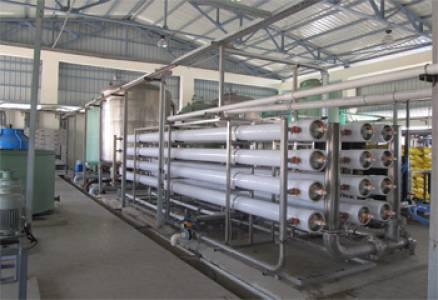Description
Nano Filtration: Superior Water Purification for Enhanced Purity
Nano filtration (NF) represents a significant advancement in water purification technology, offering a compelling alternative to reverse osmosis (RO) and ultrafiltration (UF). This advanced membrane filtration process selectively removes impurities from water, resulting in a high-quality product suitable for a range of applications. Unlike RO, NF retains essential minerals, providing a healthier and more naturally balanced water profile.
Key Features & Benefits:
- Superior Rejection of Pollutants: NF membranes effectively reject a wide array of contaminants, including:
- Multivalent Ions: Effectively removes salts like magnesium and calcium sulfate, reducing hardness and scaling.
- Organic Macromolecules: Removes larger organic molecules, including pesticides, herbicides, and other dissolved organic compounds.
- Colloids and Suspended Solids: Removes fine particles and turbidity, improving clarity and aesthetics.
- Bacteria and Viruses (depending on membrane pore size): While not as effective as RO at removing viruses, certain NF membranes offer significant viral reduction.
- Retention of Essential Minerals: Unlike RO, NF allows the passage of monovalent ions like sodium and potassium, along with essential minerals, providing a more naturally balanced and healthier water profile. This minimizes the "flat" taste often associated with RO water.
- Lower Energy Consumption: NF typically requires lower operating pressures than RO, resulting in reduced energy consumption and lower operational costs.
- Higher Flux Rates: Compared to RO, NF often demonstrates higher permeate flux rates, meaning a greater volume of purified water is produced per unit of membrane area.
- Reduced Membrane Fouling: Depending on the feed water quality, NF membranes can exhibit lower susceptibility to fouling compared to RO, extending their lifespan and reducing maintenance requirements.
- Versatile Applications: NF is suitable for diverse applications, including:
- Municipal Water Treatment: Enhancing the quality of drinking water sources.
- Industrial Process Water: Providing high-quality water for manufacturing processes.
- Food and Beverage Processing: Producing purified water for various food and beverage applications.
- Pharmaceutical and Biotech Industries: Meeting stringent water purity requirements.
- Pretreatment for RO: Used as a pretreatment stage to extend the life and enhance the efficiency of RO systems.
Technical Specifications (vary depending on specific membrane type and manufacturer):
- Molecular Weight Cut-off (MWCO): Typically ranges from 100 to 1000 Daltons, determining the size of molecules that are rejected.
- Operating Pressure: Generally lower than RO, ranging from 100 to 800 psi.
- Permeate Flux: Varies depending on operating conditions and membrane characteristics.
- Salt Rejection: Typically high, ranging from 40% to 98%, depending on the specific salt and membrane.
Choosing the Right Nano Filtration System:
Selecting the appropriate NF system depends on several factors, including the quality of the feed water, desired permeate quality, and the application requirements. Consultation with a water treatment specialist is recommended to determine the optimal NF system for your specific needs. Consider factors such as membrane type, system capacity, and automation features when making your selection.
Conclusion:
Nano filtration offers a compelling solution for water purification, delivering high-quality water while retaining essential minerals. Its energy efficiency, versatility, and cost-effectiveness make it an attractive option for a wide range of applications demanding superior water purity.
